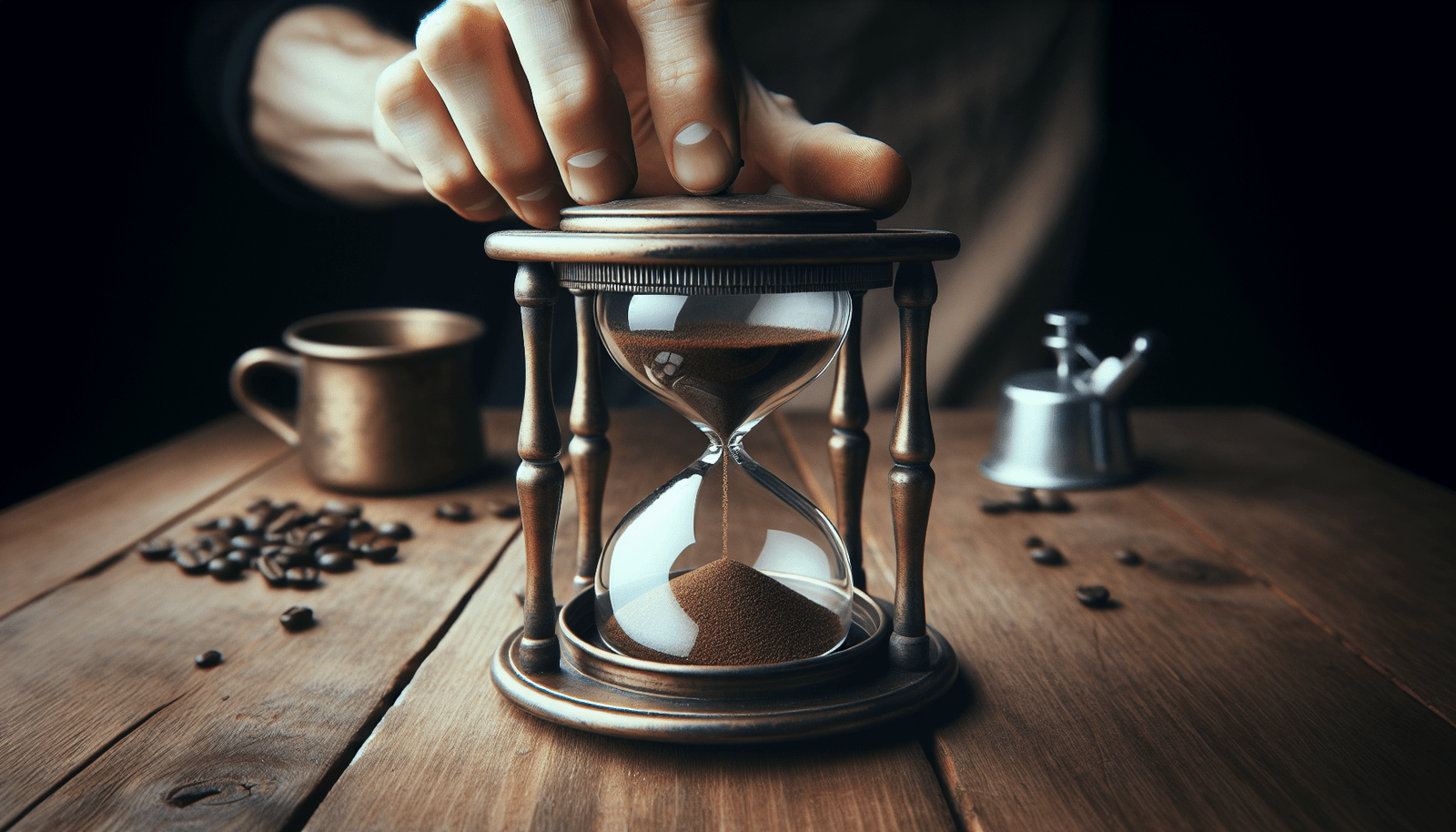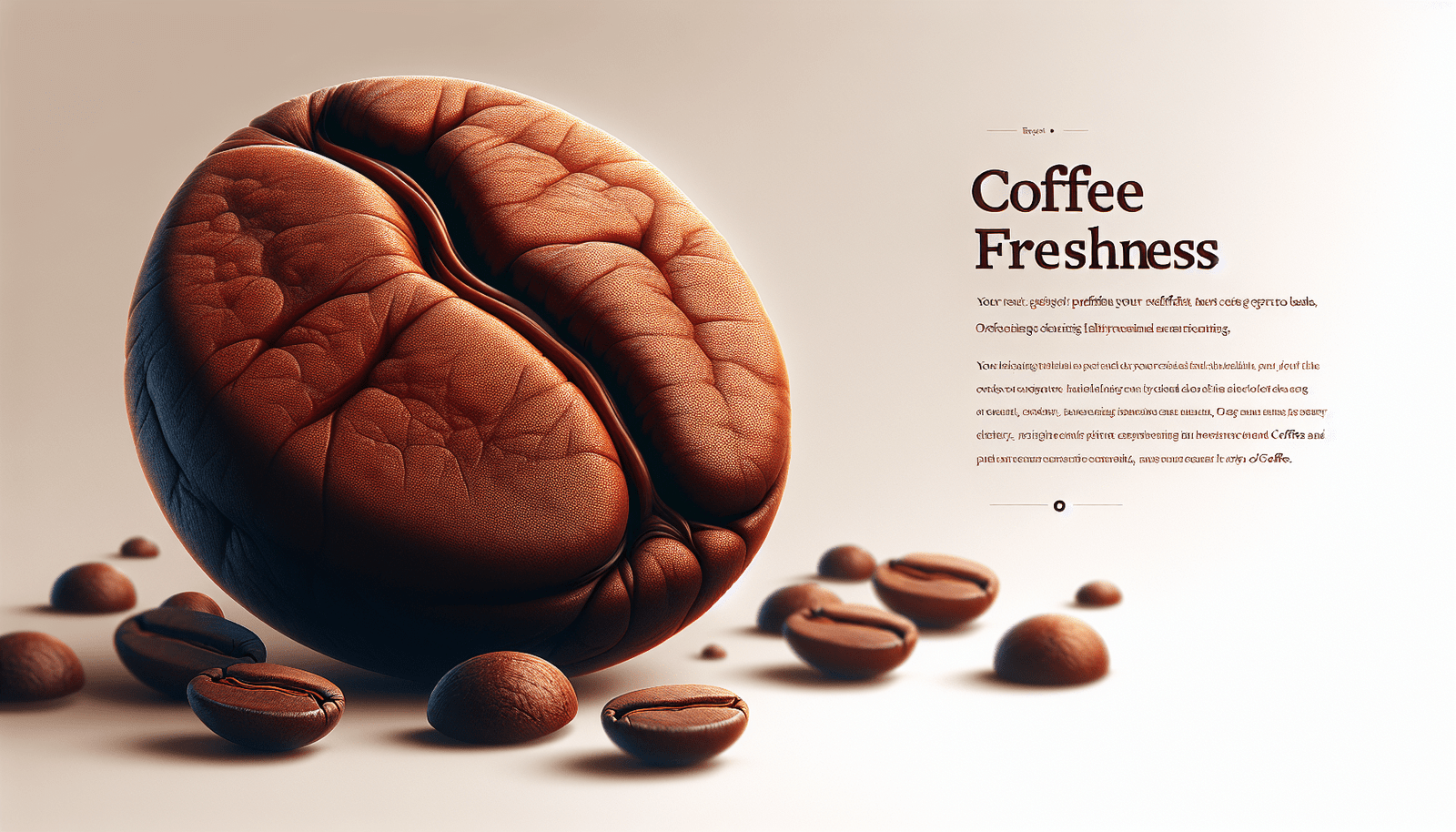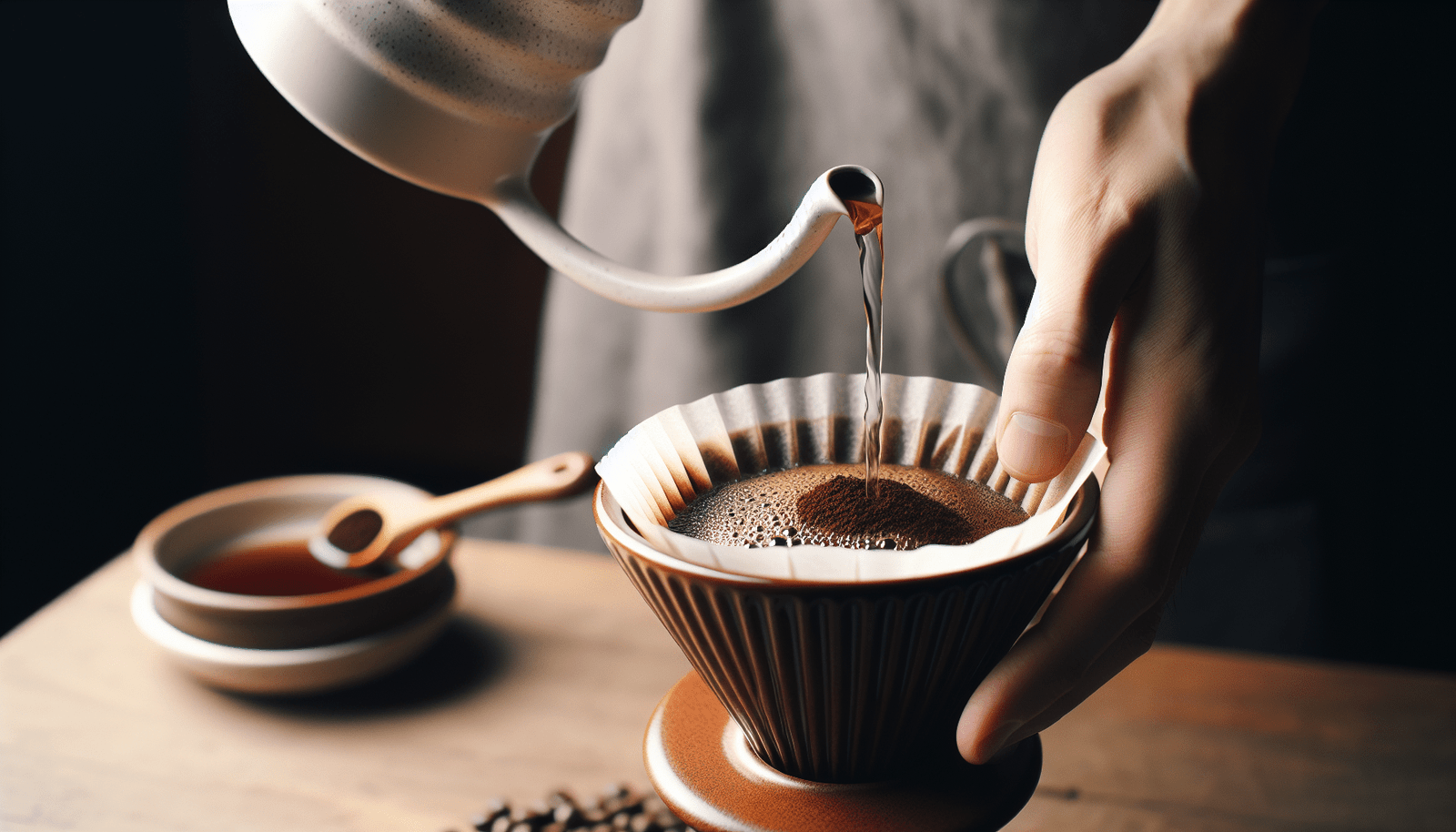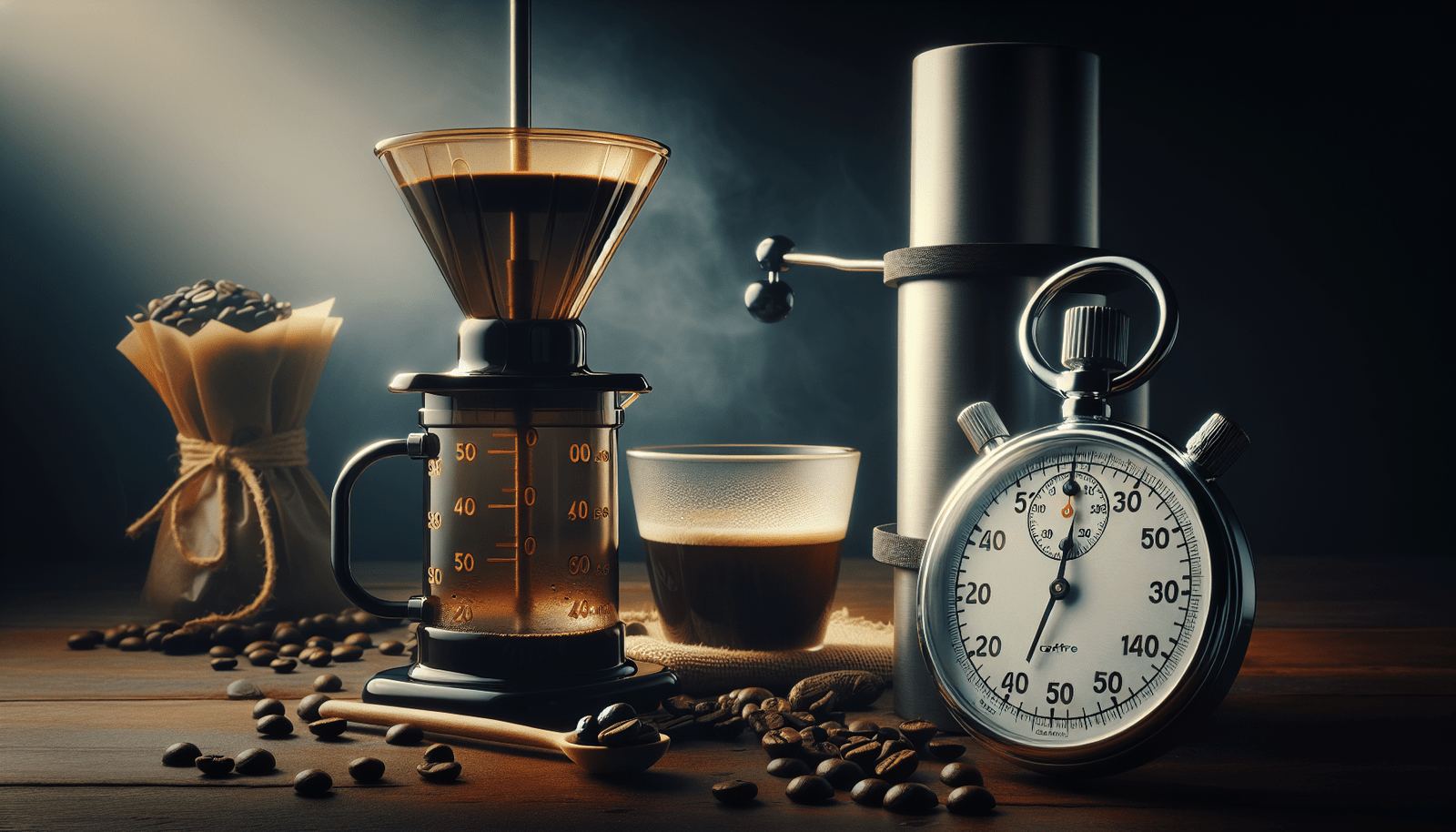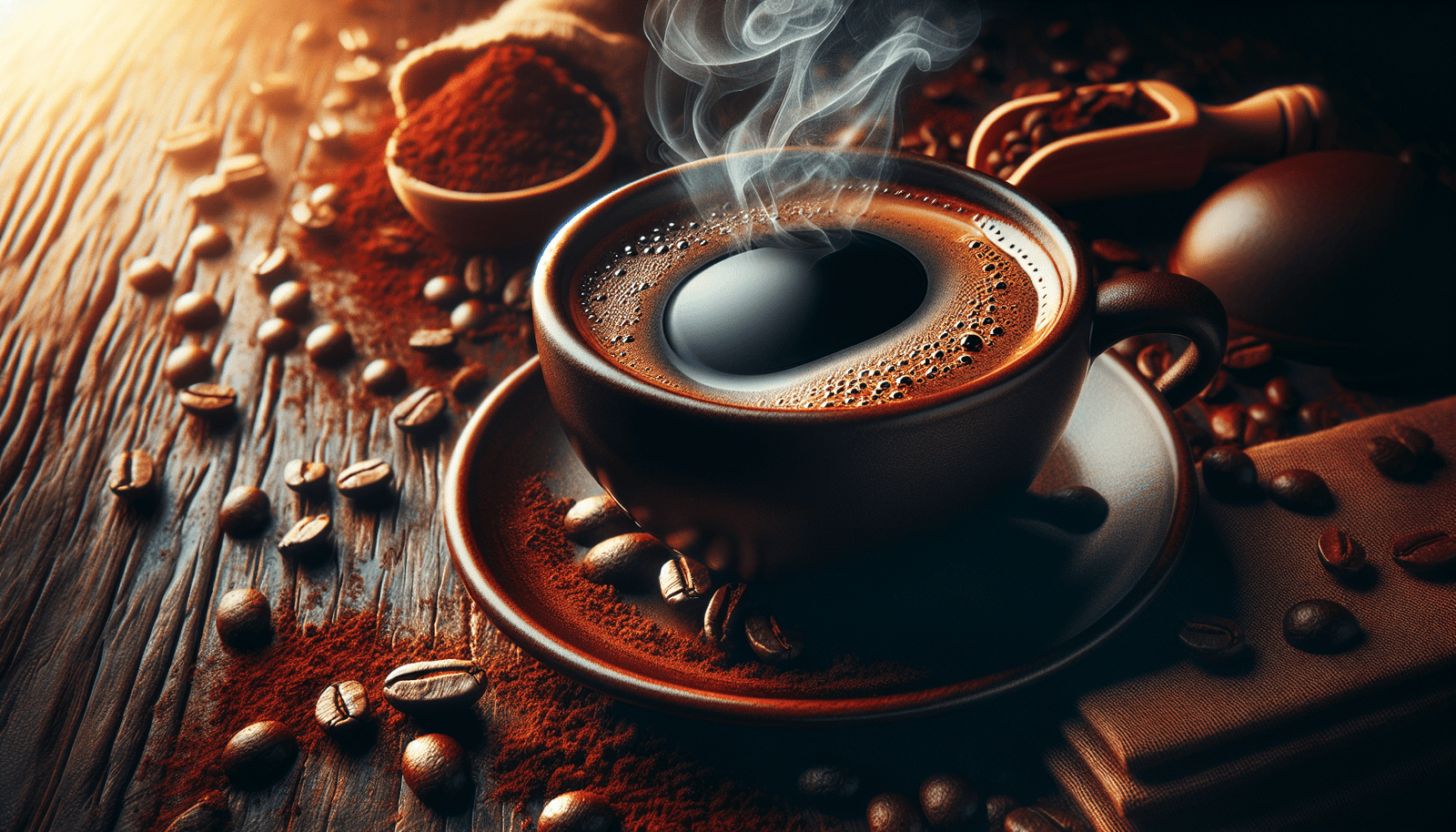Have you ever wondered how the brewing time of your morning cup of coffee impacts its taste? It turns out that the amount of time it takes to brew your coffee can drastically influence its flavor profile. Whether you prefer a bold and robust cup or a milder and smoother blend, the brewing time plays a crucial role in achieving your desired taste. In this article, we will explore the fascinating relationship between brewing time and the taste of coffee, unraveling the secrets behind that perfect cup of joe.
Introduction
Importance of brewing time
When it comes to brewing coffee, the time it takes to extract the flavors from the beans plays a crucial role in determining the taste of your cup of joe. The brewing time refers to the duration during which hot water interacts with the coffee grounds, producing a liquid that is rich in aroma, flavor, and body. It is important to understand how brewing time influences the taste of coffee, as it allows us to achieve the desired taste profile and enhance our overall coffee experience.
Factors influencing taste
Several factors come into play when it comes to the taste of coffee. While factors such as coffee bean quality, roast level, and brewing method certainly contribute to the final flavor, the brewing time has a significant impact as well. The duration of the brewing process determines how much of the coffee’s solubles are extracted, influencing the balance of flavors, acidity levels, and body in the final cup. By understanding the chemical changes that occur during brewing, we can better appreciate how brewing time affects taste.
Objective of the article
The objective of this article is to delve into the intricacies of how brewing time affects the taste of coffee. We will explore the chemical changes that occur during brewing, understand what happens when coffee is under-extracted or over-extracted, identify the ideal brewing time for different coffee varieties, discuss personal preferences, and explore other factors that can impact the taste of coffee. By the end of this article, you will have a comprehensive understanding of how brewing time influences the flavors in your cup and how you can optimize your coffee brewing process to achieve the best results.
Chemical Changes during Brewing
Extraction of solubles
During the brewing process, the hot water dissolves and extracts various flavorful compounds from the coffee grounds. These solubles include acids, oils, sugars, and other chemical components that contribute to the taste and aroma of the brewed coffee. The extraction of solubles is influenced by factors such as water temperature, grind size, and brewing time. The longer the brewing time, the more solubles are extracted from the coffee grounds, resulting in a stronger and more flavorful cup of coffee.
Role of temperature
Temperature also plays a significant role in brewing coffee. Hot water helps to extract the flavors from the coffee grounds more efficiently. However, the ideal temperature range for brewing coffee is between 195°F to 205°F (90°C to 96°C). Higher temperatures can lead to over-extraction and a bitter taste, while lower temperatures may result in under-extraction and a weaker flavor.
Maillard reaction
The Maillard reaction is a chemical reaction that occurs between amino acids and reducing sugars in coffee when exposed to heat. This reaction is responsible for the development of complex flavors and aromas, such as caramel, chocolate, and nutty notes in coffee. The Maillard reaction is more pronounced with longer brewing times, as the coffee grounds have more time to release these flavor compounds.
Acidity levels
Acidity in coffee is a desirable characteristic that adds brightness and complexity to the flavor profile. However, the level of acidity can vary depending on the brewing time. Shorter brewing times tend to result in a more acidic cup of coffee, while longer brewing times can lead to a smoother and less acidic taste. Understanding the relationship between brewing time and acidity levels is important for achieving the desired balance in your coffee.
Under-Extracted Coffee
Definition of under-extraction
Under-extraction occurs when the brewing time is too short, resulting in insufficient extraction of the coffee solubles. This can lead to a cup of coffee that lacks depth, complexity, and the full range of flavors and aromas.
Sour and sharp taste
One of the telltale signs of under-extracted coffee is a sour and sharp taste. The acidity may dominate, overpowering the other flavor notes. The lack of sufficient extraction during a shorter brewing time can result in an unbalanced and unpleasant flavor profile.
Weak body
Under-extracted coffee often has a weak body, lacking the robustness and texture that a properly extracted cup of coffee possesses. The mouthfeel may feel thin and watery, leaving a less satisfying sensation on the palate.
Lack of complexity
Under-extracted coffee also tends to lack complexity in its flavor profile. The range of flavors and nuances that should be present in the coffee may be subdued or completely absent. Without adequate extraction, you miss out on the full potential and depth of the coffee’s taste experience.
Over-Extracted Coffee
Definition of over-extraction
On the opposite end of the spectrum, over-extraction occurs when the brewing time is too long, leading to an excessive extraction of solubles from the coffee grounds. This can result in a cup of coffee that is overly bitter and astringent.
Bitter and astringent taste
Over-extracted coffee often has a bitter and astringent taste that can be quite unpleasant. The increased extraction of bitter compounds, such as tannins, creates a harsh and puckering sensation in the mouth.
Dry and watery body
Over-extracted coffee may also have a dry and watery body. The excessive extraction of solubles can lead to a thin and diluted texture, lacking the richness and fullness that a properly brewed cup of coffee should possess.
Loss of aroma
Another consequence of over-extraction is the loss of aroma. As the brewing time extends, some of the volatile aromatic compounds in the coffee may dissipate, resulting in a less aromatic and less enjoyable coffee experience.
Ideal Brewing Time
Determining the ideal brewing time
The ideal brewing time for your coffee depends on several factors, including personal preference, coffee variety, and brewing method. It is important to experiment and find the brewing time that produces a cup of coffee that aligns with your taste preferences.
Balancing extraction
The key to finding the ideal brewing time is to balance the extraction of flavors. You want to extract enough solubles to achieve a flavorful cup of coffee without over-extracting and producing bitterness. This balance can be achieved by adjusting the brewing time as well as other factors such as grind size and coffee-to-water ratio.
Achieving desired taste profile
The ideal brewing time is also determined by the desired taste profile you want to achieve. If you prefer a brighter and more acidic cup of coffee, a shorter brewing time may be suitable. Conversely, if you prefer a mellower and less acidic taste, a longer brewing time may be necessary.
Experimenting with different durations
To find your ideal brewing time, it is essential to experiment with different durations. Start with the recommended brewing time for your chosen brewing method and adjust it incrementally until you reach the desired flavor profile. Taste the coffee at different time intervals during the brewing process to understand the flavor progression and make adjustments accordingly.
Impact of Different Brewing Methods
Filter coffee
Filter coffee, also known as drip brewing, typically involves water passing through a paper or metal filter containing the coffee grounds. The brewing time for filter coffee is typically around 4 to 6 minutes, allowing for a balanced extraction of flavors. This method tends to result in a clean and bright cup of coffee with moderate body and acidity.
French press
French press brewing involves steeping coffee grounds in hot water for a certain period, usually around 4 to 5 minutes, and then pressing down a plunger to separate the brewed coffee from the grounds. The longer brewing time of the French press allows for a full-bodied and more robust cup of coffee. However, it is important to ensure that the plunger is pressed down after the desired brewing time to prevent over-extraction.
Espresso
Espresso brewing is characterized by the use of high pressure and finely ground coffee to extract a highly concentrated shot of coffee. The brewing time for espresso is relatively short, typically ranging from 20 to 30 seconds. This shorter brewing time results in a bold and intense flavor profile, with a rich crema on top. However, finding the right balance of flavors in an espresso shot requires precise control of various factors, including brewing time.
Cold brew
Cold brew is a brewing method that involves steeping coffee grounds in cold or room temperature water for an extended period, usually around 12 to 24 hours. The longer brewing time allows for a slow extraction of flavors, resulting in a smooth and low-acid cup of coffee. Cold brew is known for its mellow and less bitter taste, making it a popular choice for those who prefer a gentler coffee experience.
Adjusting Brewing Time for Coffee Varieties
Light roast
Light roast coffee beans are roasted for a shorter time compared to medium and dark roast. These beans tend to have a more delicate and nuanced flavor profile. To bring out the subtle flavors of light roast coffee, it is recommended to use a slightly shorter brewing time. This allows for a balanced extraction that highlights the unique characteristics of the beans without overwhelming them with excessive extraction.
Medium roast
Medium roast coffee beans are roasted to a medium-brown color, striking a balance between the flavors developed during roasting and the intrinsic flavors of the beans. For medium roast coffee, a moderate brewing time is often suitable to achieve a well-rounded cup. This duration allows for a good extraction of flavors without overshadowing the inherent qualities of the beans.
Dark roast
Dark roast coffee beans are roasted for a longer time, resulting in a dark brown color and rich, bold flavors. Due to the extended roasting process, dark roast coffee can withstand a slightly longer brewing time to fully extract its intense flavors. This longer duration allows for the extraction of the deep, smoky, and caramelized notes characteristic of dark roast coffee.
Single-origin beans
Single-origin coffee beans, sourced from a particular region or farm, often have distinct flavor profiles that reflect their terroir and processing methods. To truly appreciate the unique flavors of single-origin beans, it is recommended to tailor the brewing time to bring out their specific qualities. Experimenting with different durations can help you achieve the optimal extraction and fully appreciate the nuances of these specialty beans.
Personal Preferences
Individual taste variations
It is important to recognize that taste is subjective, and individual preferences can vary greatly when it comes to coffee. Some people may prefer a brighter and more acidic cup, while others may enjoy a smoother and more mellow taste. Understanding your own taste preferences is crucial in determining the ideal brewing time for your coffee.
Different strength preferences
In addition to taste preferences, individual preferences for the strength of coffee can also influence the ideal brewing time. Some individuals prefer a stronger and bolder cup, while others enjoy a lighter and more subtle brew. Adjusting the brewing time can help achieve the desired strength, allowing you to personalize your coffee experience.
Finding the perfect balance
Ultimately, finding the perfect balance in your cup of coffee is a matter of trial and error. It may take some time and experimentation to determine the ideal brewing time that suits your taste preferences and delivers the desired flavors. Take note of the adjustments you make and the resulting taste profile to refine your brewing process and consistently achieve a satisfying cup of coffee.
Customizing brewing time
One of the beauties of brewing your own coffee is the ability to customize every aspect of the process, including the brewing time. Once you have a basic understanding of how brewing time affects the taste, you can further fine-tune your coffee by adjusting the time to your liking. Whether it’s a few seconds longer or shorter, these small adjustments can make a significant difference in the final flavor of your brewed coffee.
Alternative Factors Affecting Taste
Grind size
In addition to brewing time, the grind size of the coffee beans can significantly impact the taste of your brew. Finer grind sizes generally require shorter brewing times, while coarser grind sizes may require longer brewing times. Find the appropriate grind size for your brewing method, and adjust the brewing time accordingly to achieve optimal extraction.
Water quality
The quality of the water used in brewing can also affect the taste of your coffee. Water that is too hard or too soft can impact the extraction process and result in an unbalanced flavor profile. Experimenting with different water sources or using filtered water can help enhance the overall taste of your brewed coffee.
Coffee-to-water ratio
The ratio of coffee to water is another crucial factor in determining the taste of your coffee. Adjusting the amount of coffee grounds relative to the water can influence the intensity and strength of the flavors. As a general guide, a higher coffee-to-water ratio will produce a stronger and more flavorful cup, while a lower ratio will result in a milder taste.
Brewing equipment
Different brewing equipment can also have an impact on the brewing time and the resulting taste. Various brewing methods, such as pour-over, espresso machines, or automatic drip machines, have different extraction rates and require different brewing times. Familiarize yourself with the specific requirements of your brewing equipment to ensure optimal extraction and flavor development.
Conclusion
Summary of findings
In conclusion, the brewing time plays a vital role in determining the taste of your coffee. Through the extraction of solubles, the influence of temperature, the Maillard reaction, and the balance of acidity levels, the duration of the brewing process directly affects the flavors, aroma, and body of the final cup.
Understanding the potential pitfalls of under-extracted and over-extracted coffee helps us appreciate the importance of finding the ideal brewing time. By adjusting the brewing time according to the coffee variety, personal preferences, and brewing method, we can achieve a cup of coffee that aligns with our taste preferences and delivers a satisfying, flavorful experience.
Importance of experimentation
Experimentation is key to discovering your ideal brewing time. Each individual has unique taste preferences, and fine-tuning the brewing process allows you to customize your coffee experience. Embrace the journey of experimentation, trying different brewing times, adjusting other variables, and noting the impact on the flavor profile. Over time, you will become more attuned to your preferences and develop a deeper understanding of how brewing time affects the taste of your coffee.
Enhancing coffee experience
By recognizing the significance of brewing time in relation to taste, you can elevate your coffee experience. The ability to adjust the brewing time, customize flavors, and explore alternative factors that affect taste empowers you to create the perfect cup of coffee tailored to your preferences. With each sip, savor the flavors and aromas that have been meticulously extracted through the optimal brewing time, and enjoy the rich, vibrant world of coffee.
